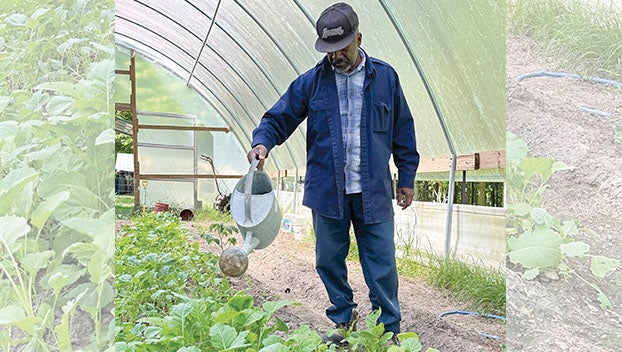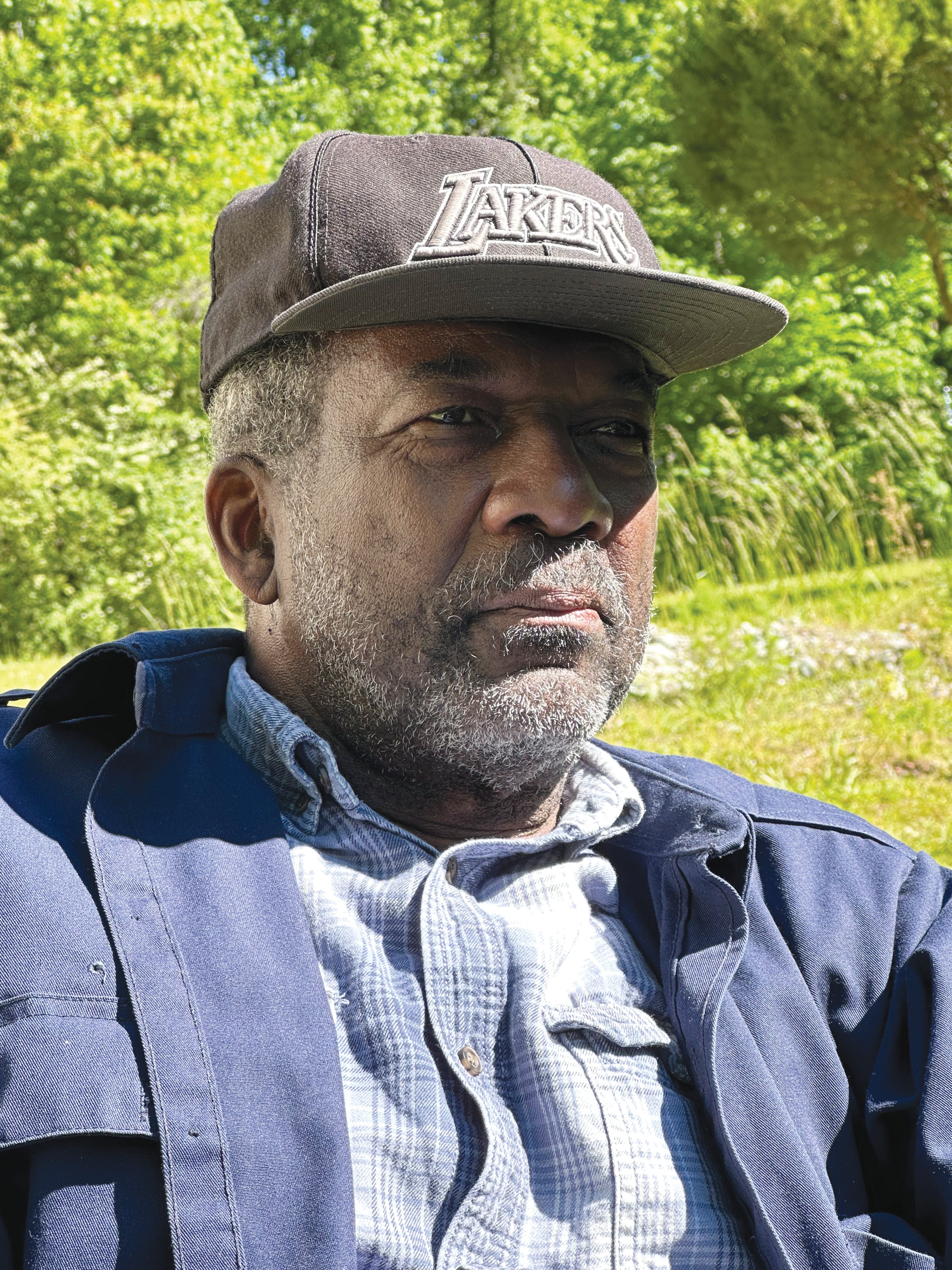Black farmers are being priced out of affordable farmland
Published 11:56 am Monday, May 8, 2023

- Bill Booth on his farm off of Keyesville Road (Clark Curtis / For the Washington Daily News)
|
Getting your Trinity Audio player ready...
|
By Clark Curtis for the Washington Daily News
Bill Booth, a local Black farmer, has been working the land here in Beaufort County for over six years now. As the founder and CEO of Alpha Life Enrichment Center, Inc, which focuses on addressing food insecurities in Beaufort County and a member of the North Carolina Small Farm Task Force through North Carolina A&T, he is well aware of the plight of the Black farmer in recent years. “Over the last 20 years the small Black farmers have pretty much aged out,” said Booth. “These are the ones that grew up on the farm, got old, and gave up farming. At one time they owned a lot of land in Beaufort County, but when it came time to sell their land, there was no one there to help oversee their financial transactions. Many literally had their land stolen, or they sold it well below its market value as they really didn’t understand what it was worth. So many of the Black farmers are gone, as is so much of their land.”
Booth said he has spoken with young Blacks who are becoming interested in getting back into the farming life. They want to experience the peace and tranquility that being out in nature and working the land can bring. He says they also see that having land is really important not just for their existence as a farmer but their children and their childrens’ children. But, they are finding out there are limited parcels of farmland that are now available, and that what is available, is priced well above their means. “When I purchased some farmland five or six years ago it was selling for $4,300 per acre,” said Booth. “Today, a twelve acre parcel just down the road from me that was subdivided into three, four acres tracts, was selling for $12,000 per acre. It was all gobbled up in less than three months. Another lot that was less than an acre sold for $24,000. Unless these young Black farmers hit the lottery or something, they are out of luck.”

Bill Booth
Booth said the large farmers and Big Ag are controlling a lot of this. Not only do they own a lot of the land, they aren’t too anxious to be selling any of it. In addition Booth said the large farmers are able to secure loans, which the smaller Black farmers can’t, to purchase their big equipment. “I was trying to purchase a piece of land and went to the USDA to speak with them about a loan as I was under the impression they were trying to help Black farmers acquire land and that sort of stuff,” said Booth. “I had an exceptionally good financial track record and they still expected me to put down 25 percent and wanted to limit the term of the loan to 10-15 years. How many people just starting out have that kind of money?”
Despite the obstacles, Booth remains enthusiastic and is encouraged by the number of young Black individuals who have an interest and a desire to get back into the farming business because the age of the average Black farmer is 67. And he hopes with the help of organizations like Land Loss Prevention, which is committed to helping Black, indigenous, people of color and less-resourced farmers and landowners in North Carolina seeking to preserve their farms, homes, land and rural livelihoods. And hopefully the elderly Black farmers can connect with some of these young Black farmers and bring them along in some way. But despite Booths’ enthusiasm he pointed out these are still some very difficult times. “I don’t know how we can change this unless we come up with a big pot of money to help these young aspiring Black farmers to purchase some land. If not, I’m afraid a lot of these folks are just kind of stuck. There is no magic wand that I can see to get them started.”





